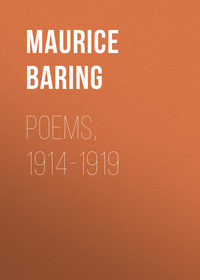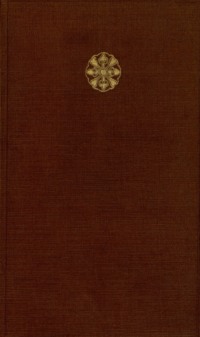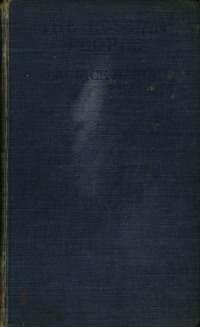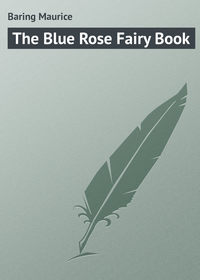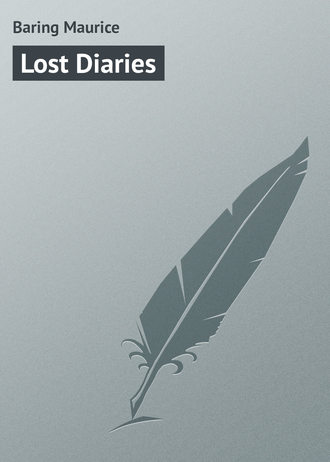 полная версия
полная версияLost Diaries
But the Duke and the Dowager have been most sympathetic.
June 26. – Jane has fled, and my jewels as well as hers are missing.
It is suspected that the attaché at the Florentine Embassy at Milan is at the bottom of the conspiracy, for Jane herself had a good heart.
IV
FROM THE DIARY OF FROISSART, WAR CORRESPONDENT
Parys, The Feast of the Epiphanie. – The astrologers say there will be plenty-full trouble in Normandy, in the spring.
June 10. – To dyner with the Cardinall of Piergourt to meet the gentyll King of Behayne and the Lorde Charles, his son. The Cardinall sayd neither the Kynge of Englande nor the Frenche Kynge desire warre, but the honour of them and of their people saved, they wolde gladly fall to any reasonable way. But the King of Behayne shook his heade and sayd: "I am feare I am a pesymyste," which is Almayne for a man who beholds the future with no gladde chere.
June 20. – The great merchaunt of Araby, Montefior, says there will be no warre. He has received worde from the cytie of London, and his friends, great merchaunts all, and notably, Salmone and Glukstyn, sayd likewise that there will be no warre.
June 30. – The currours have brought worde home, the Kynge of Englande was on the see with a great army, and is now a lande in Normandy. Have received faire offers for chronycles of the warre from London, Parys, and Rome; they offer three thousand crounes monthly, payeing curtesly for all my expenses. Have sayd I will gladly fall to their wish.
July 1. – Trussed bagge and baggage in great hast and departed towarde Normandy, the seat of warre.
July 2. – Ryde but small journeys, and do purpose, being no great horseman, every time I have to ryde a horse, to add three crounes to the expenses which my patrons curtesly pay.
Take lodgynges every day bytwene noone and thre of the clocke. Finde the contrey frutefull and reasonably suffycent of wyne.
July 3, Cane. – A great and ryche town with many burgesses, crafty men. They solde wyne so deare that there were no byers save myself who bought suffycent and added to the lyste which my patrons curtesly pay.
July 4, Amyense. – Left Cane and the englysshmen have taken the toune and clene robbed it. Right pensyve as to putting my lyfe in adventure.
Sir Godmar de Fay is to kepe note of the chronyclers and he has ordayned them to bring him their chronycles. He has curtesly made these rules for the chronyclers. Chronyclers may only chronycle the truth. Chronyclers may not chronycle the names of places, bridges, rivers, castels where batayles happen – nor the names of any lordes, knyghtes, marshals, erles, or others who take part in the batayle: nor the names of any weapons or artillery used, nor the names or numbers of any prisoners taken in batayle.
Thanks to Sir Godmar de Fay the chronycler's task has been made lyghter.
July 6, Calys. – The chronyclers have been ordayned by Sir Godmar de Fay to go to Calys. There are nine chronyclers. One is an Alleymayne, who is learned in the art of warre, one is a Genowayes, and one an Englysshman, the rest are Frenche. The cytie of Calys is full of drapery and other merchauntdyse, noble ladyes and damosels. The chronyclers have good wyl to stay in the cytie.
July 7. – Sir Godmar de Fay has ordayned all the chronyclers to leave the cytie of Calys and to ride to a lytell town called Nully, where there are no merchauntdyse, and no damosels, nor suffycent of wyne. The chronyclers are not so merrie as in the cytie of Calys.
July 9. – Played chesse with the Genowayse and was checkmate with a bishop.
August 6. – The chronyclers are all pensyve. They are lodged in the feldes. There has fallen a great rayne that pours downe on our tents. There is no wyne nor pasties, nor suffycent of flesshe, no bookes for to rede, nor any company.
Last nyghte I wrote a ballade on Warre, which ends, "But Johnnie Froissart wisheth he were dead." It is too indiscrete to publysh. I wysh I were at Calys. I wysh I were at Parys. I wysh I were anywhere but at Nully.
August 23. – At the Kynge's commandment the chronyclers are to go to the fronte.
August 25, Friday. – The Kynge of Englande and the French Kynge have ordayned all the business of a batayle. I shall watch it and chronycle it from a hill, which shall not be too farre away to see and not too neare to adventure my lyfe.
August 26. – I rode to a windmill but mistooke the way, as a great rayne fell, then the eyre waxed clere and I saw a great many Englyssh erls and Frenche knyghtes, riding in contrarie directions, in hast. Then many Genowayse went by, and the Englysshmen began to shote feersly with their crossbowes and their arowes fell so hotly that I rode to a lytell hut, and finding shelter there I wayted till the snowe of arowes should have passed. Then I clymbed to the top of the hill but I could see lytell but dyverse men riding here and there. When I went out again, aboute evensong, I could see no one aboute, dyverse knyghtes and squyers rode by looking for their maisters, and then it was sayd the Kynge had fought a batayle, and had rode to the castell of Broye, and thence to Amyense.
August 30. – The chronyclers have been ordayned to go to Calys, whereat they are well pleased save for a feare of a siege. The chronyclers have writ the chronycle of the Day of Saturday, August 26. It was a great batayle, ryght cruell, and it is named the batayle of Cressey.
Some of the chronyclers say the Englysshmen discomfyted the French; others that the King discomfyted the Englysshe; but the Englysshmen repute themselves to have the victorie; but all this shall be told in my chronycle, which I shall write when I am once more in the fayre cytie of Parys. It was a great batayle and the Frenche and the Englysshe Lordes are both well pleased at the feats of arms, and the Frenche Kynge, though the day was not as he wolde have had it, has wonne hygh renowne and is ryght pleased – likewise the Englysshe Kynge, and his son; but both Kynges have ordayned the chronyclers to make no boast of their good adventure.
August 30. – The Kynge of Englande has layd siege to Calys and has sayd he will take the towne by famysshing. When worde of this was brought to the chronyclers they were displeased. It is well that I have hyd in a safe place some wyne and other thynges necessarie.
Later. – All thynges to eat are solde at a great pryce. A mouse costs a croune.
August 31. – All the poore and mean people were constrained by the capture of Calys to yssue out of the town, men, women, and children, and to pass through the Englysshe host, and with them the poore chronyclers. And the Kynge of Englande gave them and the chronyclers mete and drinke to dyner, and every person ii d. sterlying in alms.
And the chronyclers have added to the lyst of their costs which their patrons curtesly pay: To loss of honour at receiving alms from an Englysshe Kynge, a thousand crounes.
V
FROM THE DIARY OF GEORGE WASHINGTON
WRITTEN WHEN A SCHOOLBOY
Bridges Creek, 1744, September 20. – My mother has at last consented to let me go to school. I had repeatedly made it quite plain to her that the private tuition hitherto accorded to me was inadequate; that I would be in danger of being outstripped in the race owing to insufficient groundwork. My mother, although very shrewd in some matters, was curiously obstinate on this point. She positively declined to let me attend the day-school, saying that she thought I knew quite enough for a boy of my age, and that it would be time enough for me to go to school when I was older. I quoted to her Tacitus' powerful phrase about the insidious danger of indolence; how there is a charm in indolence – but let me taste the full pleasure of transcribing the noble original: "Subit quippe etiam ipsius inertiæ dulcedo: et invisa primo desidia postremo amatur"; but she only said that she did not understand Latin. This was scarcely an argument, as I translated it for her.
I cannot help thinking that there was sometimes an element of pose in Tacitus' much-vaunted terseness.
September 29. – I went to school for the first time to-day. I confess I was disappointed. We are reading, in the Fourth Division, in which I was placed at my mother's express request, Eutropius and Ovid; both very insipid writers. The boys are lamentably backward and show a deplorable lack of interest in the classics. The French master has an accent that leaves much to be desired, and he seems rather shaky about his past participles. However, all these things are but trifles. What I really resent is the gross injustice which seems to be the leading principle at this school – if school it can be called.
For instance, when the master asks a question, those boys who know the answer are told to hold up their hands. During the history lesson Henry VIII. was mentioned in connection with the religious quarrels of the sixteenth century, a question which, I confess, can but have small interest for any educated person at the present day. The master asked what British poet had written a play on the subject of Henry VIII. I, of course, held up my hand, and so did a boy called Jonas Pike. I was told to answer first, and I said that the play was in the main by Fletcher, with possible later interpolations. The usher, it is scarcely credible, said, "Go to the bottom of the form," and when Jonas Pike was asked he replied, "Shakespeare," and was told to go up one. This was, I consider, a monstrous piece of injustice.
During one of the intervals, which are only too frequent, between the lessons, the boys play a foolish game called "It," in which even those who have no aptitude and still less inclination for this tedious form of horse-play, are compelled to take part. The game consists in one boy being named "it" (though why the neuter is used in this case instead of the obviously necessary masculine it is hard to see). He has to endeavour to touch one of the other boys, who in their turn do their best to evade him by running, and should he succeed in touching one of them, the boy who is touched becomes "it" ipso facto. It is all very tedious and silly. I was touched almost immediately, and when I said that I would willingly transfer the privilege of being touched to one of the other boys who were obviously eager to obtain it, one of the bigger boys (again Jonas Pike) gave me a sharp kick on the shin. I confess I was ruffled. I was perhaps to blame in what followed. I am, perhaps, inclined to forget at times that Providence has made me physically strong. I retaliated with more insistence than I intended, and in the undignified scuffle which ensued Jonas Pike twisted his ankle. He had to be supported home. When questioned as to the cause of the accident I regret to say he told a deliberate falsehood. He said he had slipped on the ladder in the gymnasium. I felt it my duty to inform the head-master of the indirect and unwilling part I had played in the matter.
The head master, who is positively unable to perceive the importance of plain-speaking, said, "I suppose you mean you did it." I answered, "No, sir; I was the resisting but not the passive agent in an unwarrantable assault." The result was I was told to stay in during the afternoon and copy out the First Eclogue of Virgil. It is characteristic of the head master to choose a feeble Eclogue of Virgil instead of one of the admirable Georgics. Jonas Pike is to be flogged, as soon as his foot is well, for his untruthfulness.
This, my first experience of school life, is not very hopeful.
October 10. – The routine of the life here seems to me more and more meaningless. The work is to me child's play; and indeed chiefly consists in checking the inaccuracies of the ushers. They show no gratitude to me – indeed, sometimes the reverse of gratitude.
One day, in the English class, one of the ushers grossly misquoted Pope. He said, "A little knowledge is a dangerous thing." I held up my hand and asked if the line was not rather "A little learning is a dangerous thing," adding that Pope would scarcely have thought a little knowledge to be dangerous, since all knowledge is valuable. The usher tried to evade the point by a joke, which betrayed gross theological ignorance. He said: "All Popes are not infallible."
One of the boys brought into school a foolish toy – a gutta-percha snake that contracts under pressure and expands when released, with a whistling screech.
Jonas Pike, who is the most ignorant as well as the most ill-mannered of all the boys, suggested that the snake should be put into the French master's locker, in which he keeps the exercises for the week. The key of the locker is left in charge of the top boy of the class, who, I say it in all modesty, is myself. Presently another boy, Hudson by name, asked me for the key. I gave it to him, and he handed it to Pike, who inserted the snake in the locker. When the French master opened the locker the snake flew in his face. He asked me if I had had any hand in the matter. I answered that I had not touched the snake. He asked me if I had opened the locker; I, of course, said "No." Questioned further as to how the snake could have got there, I admitted having lent the key to Hudson, ignorant of any ulterior purpose. In spite of this I was obliged, in company with Pike and Hudson, to copy out some entirely old-fashioned and meaningless exercises in syntax.
October 13. – A pretty little episode happened at home to-day. The gardener's boy asked me if he might try his new axe on the old cherry-tree, which I have often vainly urged mother to cut down. I said, "By all means." It appears that he misunderstood me and cut down the tree. My mother was about to send him away, but I went straight to her and said I would take the entire responsibility for the loss of the tree on myself, as I had always openly advocated its removal and that the gardener's boy was well aware of my views on the subject. My mother was so much touched at my straightforwardness that she gave me some candy, a refreshment to which I am still partial. Would that the ushers at school could share her fine discrimination, her sound judgment, and her appreciation of character.
VI
FROM THE DIARY OF MARCUS AURELIUS
Rome. The Ides of March. – It is curious that Julius Cæsar should have considered this date to be unlucky! It was on that – for him auspicious – date that he was for ever prevented from committing the egregious folly of accepting the crown of Rome. A king of Rome is an unthinkable thing! An emperor of the Roman Empire is, of course, a very different matter.
April 1. – Faustina, in accordance with some ridiculous tradition, committed a grossly undignified act. She came into my study, the third hour – my busiest time, and asked me to lend her the memoirs of Remus in the Wolf's Lair. I spent a fruitless half-hour in search of the book. It then occurred to me that the whole matter was a jest – in the very worst taste, since both my secretaries were present – and I regret to say they smiled.
April 6. – Went to the games, in company with Faustina and Commodus. Commodus, as usual, too exuberant in the manner of his applause. I am all in favour of his applauding. The games are not what they used to be. The modern lions consume the Christians without the slightest discrimination. All this modern hurry and hustle is very distressing.
April 10. – Stayed at Tivoli with V… and A… from Saturday to Monday. Even in a country house a day may be well spent. Much interesting talk on the Fiscal question. V… deprecates Tariff Reform in all its shapes. A… while remaining, as he ever was, a staunch Free Trader, considers that in some cases – and given certain conditions – retaliation is admissible – possibly in the matter of the fringes of litters and the axles of chariot-wheels – objects which exclusively concern the very rich.
April 20. – An exhilarating day. Walked to the Tiber and back. Read the preface of the new Persian grammar. Faustina interrupted me three times over purely trivial matters of domestic detail.
April 20. – Commodus is impossible. He grows more and more extravagant every day. He persists in spending his pocket money in buying absurd pets – and the gods know that Faustina has enough pets in the house already. But I am thankful to say I have drawn the line at badgers. I put my foot down. I was dignified, but firm. I endure Faustina's peacocks, because I think it is good for my better nature. Besides which they are ornamental and – if properly dressed – not unpleasant to the palate, but badgers – !
April 20. – A painful episode occurred. When I returned from my morning stroll I was aware that an altercation was taking place in the atrium. I entered and found myself face to face with two Persian merchants – of the lowest type – who were exhibiting to Faustina several ropes of pearls. Faustina, of course, had had no hand in the matter. The merchants had forced themselves on her presence on some ridiculous pretext. Faustina, in spite of her faults, values jewels at their true price. She has a soul above such things. She abhors trinkets. She sees their futility.
April 23. – Re-read the Iliad. Find it too long. The character of Helen shows defective psychology. Homer did not understand women.
April 27. – Games again. Very tame. Lions lethargic as usual. How dissatisfied Nero would have been! Nero, although a bad poet, was an excellent organiser. He understood the psychology of the crowd. He was essentially an altruist. Faustina insisted on making a foolish bet. Women's bets are the last word of silliness. They bet because the name of a gladiator reminds them of a pet dog, or for some such reason. They have no inkling of logic: no power of deduction. I found no difficulty in anticipating the victories of the successful candidates, but I refrained from making a wager.
May 1. – Absurd processions in the streets. Faustina painted her face black and walked round the garden in a movable bower of greenery. I could see no kind of point or sense in the episode. Under cross-examination, she confessed that the idea had been suggested to her by her nurse. All this is very trying. It sets Commodus the worst possible example. But I suppose I must endure this. The ways of Fate are inscrutable, and after all, things might have been worse. Faustina might have been a loose woman! A profligate!
May 6. – Read out the first canto of my epic on the origins of species to Faustina and Commodus. Commodus, I regret to say, yawned and finally dozed. Faustina enjoyed it immensely. She said she always thought that I was a real poet, and that now she knew it. She says she thinks it is far better than Homer or Virgil; that there is so much more in it. Faustina is a very good judge of literature. There is no one whose opinion on matters of art and literature I value more. For instance she thinks Sappho's lyrics are not only trivial, but coarse. She also thinks Æschylus much overrated, which, of course, he is. How far we have got beyond all that! Some day I mean to write a play on the subject of love. It has never yet been properly treated – on the stage. Sophocles and Seneca knew nothing of women; and Euripides' women are far too complicated.
May 12. – Meditated on religion, but was again interrupted by Faustina just as I was making a really illuminating note on the subject of Isis. Much distressed by modern free thought. Commodus pays much too much attention to the minor goddesses, but this, at his age, is excusable. He is, thank goodness, entirely untainted by the detestable Jewish or so-called "Christian" superstition, which I fear is spreading.
May 13. – V… and A… dined. Also a Greek philosopher whose name escapes me. The Greek was most indiscreet. He discussed the Christian question before everybody. He must have been aware by my expression that the topic is one which I consider unfit for public discussion. He not only discussed, but he actually defended this hysterical, obstinate, unpatriotic, and fundamentally criminal sect. I do not, of course, entirely credit the stories current with regard to their orgies and their human sacrifices. The evidence is not – so far – sufficiently sound; but, whatever their practices and their rites may be, the Christians are a pernicious and dangerous sect. They will prove, unless they are extirpated, the ruin of the Empire. They have no notion of civic duty; no reverence, no respect for custom or tradition. They are unfilial, and they are the enemies of the human race. They are a cancer in the State. Faustina agrees with me, I am glad to say.
May 14. – Commodus is suspected of having made friends with a Christian slave. The rumour is no doubt a calumny. I cannot bring myself to believe that a son of mine, with the education which he has enjoyed, and the example which has ever been before his eyes, of his father's unswerving and unremitting devotion to duty and the State, can have degraded himself by dabbling in this degrading and wicked superstition. Nevertheless it is as well to be on the safe side, and, after prolonged reflection, I have decided to make a great sacrifice. I am going to allow him to take part professionally in the games: under another name of course. I think it may distract him. The games are a Roman institution. They are the expression of the Empire. They breathe the spirit of Romulus, of Brutus, of Regulus, of Fabius Cunctator, of Cincinnatus, of the Gracchi. Faustina said only yesterday that she felt she was the mother of at least one Gracchus! That was well said. I was much touched.
May 20. – Commodus has appeared with great success, but the Lions still show apathy.
VII
FROM THE DIARY OF MRS JAMES LEE'S HUSBAND
October 1. – At last the heat wave is over. It's the first day we have been able to breathe for months.
Just as I was coming back from my morning walk, Hilda leant out of the window, and suggested I could climb up into her room like Romeo. I said I preferred the door. Hilda shut the window with a bang and was cross all through luncheon.
"Rissoles again," I said to Hilda, "you know I hate hashed meat." She said: "I know I can't give you the food you get at the Grand Hotel." That's because I went to Deauville last week.
October 5. – We lit a fire for the first time last night. Hilda said she felt cold. I thought it was rather stuffy. She said: "Do light the fire," and went out of the room. I lit it, and it smoked. This chimney always does smoke at first. When she came back she said: "What have you done?" I said: "I've lit the fire; you asked me to." She said: "But not all that wood at once, and you ought to have pushed the wood back." For the rest of the evening she complained of the heat and the smoke, although we had the window open in the dining room and the smoke had all disappeared after a few moments.
October 7. – It's very windy. Went for a walk on the cliffs. Back through the fields. Saw a rabbit and a magpie. Wish I had had a gun.
I said to Hilda that the sea was striped to leeward like a snake, and olive-coloured, but on the weather side it was spotted with wind. Hilda said: "You are very observant about the weather." This was a hit at me and the fire. Little things rankle in her mind.
Afterwards she was sorry she had said this and she said: "What fun we shall have here in winter." I don't think it's a winter place myself, but I want to stay here till I've finished my poem. I'm getting on with it.
October 8. – I read out to Hilda a lyric I had just finished. It's to come in the Second Canto when Lancelot says good-bye to Princess Asra. The situation is roughly that the Princess bullies him and he gets sick of it and goes – and then, of course, she's sorry, when it's too late. He sings the song as he's going. She overhears it. I was rather pleased with it. Hilda said: "Oh! of course I know I worry you with my attentions." What this had got to do with the poem I can't think. It was all because last night, when I was working, Hilda came into my room and said: "Are you warm enough?" and I said "Yes," rather absent-mindedly, as I was in the middle of my work. Ten minutes later she looked in again and asked me if I wanted some beer, and I said "No," without looking up. Then very soon afterwards she came in a third time, and asked me if I was sure I wasn't cold, and whether I wouldn't have the fire lit. Rather snappishly – because it is a bore to be interrupted just when one's on the verge of getting an idea fixed – I said "No."


